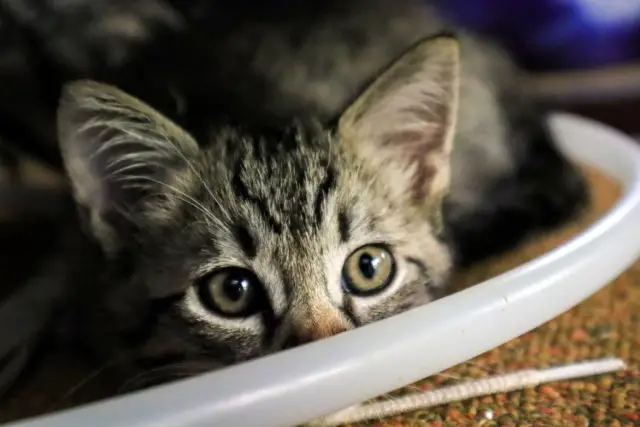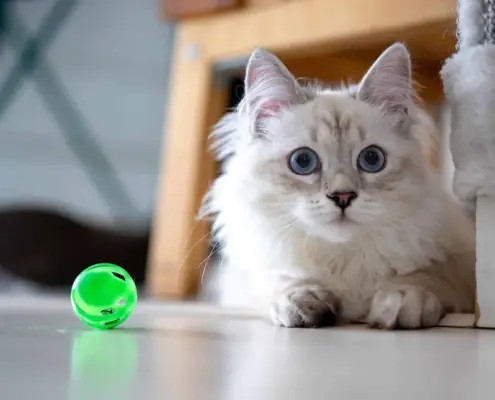
Cats have long been cherished as beloved companions and pets. Their independent nature and mysterious behavior often lead people to believe that cats are aloof and indifferent. However, contrary to popular belief, many cats are incredibly friendly animals. In this article, we will delve into the science behind feline friendliness and explore the reasons why cats are so friendly.
Understanding the Domestication of Cats
To understand why cats are friendly, it is essential to examine their domestication process. Unlike dogs, which were purposefully bred for specific traits, cats underwent a natural process of domestication. Cats initially began associating with humans to hunt rodents attracted to grain stores around 9,000 years ago. Over time, these cats became more tolerant of human presence, leading to the development of a mutually beneficial relationship.
The Evolution of Cat Behavior
The evolution of cat behavior plays a significant role in their friendliness towards humans. Cats are natural hunters, and their predatory instincts are deeply ingrained. However, through domestication, cats have learned to adapt their behavior to coexist with humans. Friendly cats have evolved to display more social behaviors, such as purring, rubbing against their owners, and kneading. These actions not only indicate comfort but also serve as a way for cats to establish social bonds with humans.
The Social Nature of Cats
Contrary to popular belief, cats are social animals. While they may not exhibit pack behavior like dogs, cats form social hierarchies and engage in social interactions with other cats and humans. Cats are known to form strong bonds with their owners and often seek their attention and affection. Their friendly behavior towards humans can be attributed to their social nature and the desire for companionship.
The Role of Genetics in Feline Friendliness
Genetics also play a significant role in determining a cat’s friendliness. Some cat breeds, such as the Maine Coon and Ragdoll, are known for their sociable and affectionate nature. These breeds have been selectively bred for their friendly traits, resulting in genetic predispositions towards friendliness. However, it is important to note that friendly cats can be found in all breeds and mixed-breed cats, as friendliness is not solely determined by genetics.
Environmental Factors that Influence Cat Behavior
While genetics provide a foundation for feline friendliness, environmental factors also play a crucial role. Cats that are raised in nurturing and positive environments are more likely to exhibit friendly behaviors. Early socialization, exposure to different stimuli, and positive interactions with humans and other animals contribute to a cat’s friendliness. Conversely, cats that experience trauma or neglect may display fearful or aggressive behaviors.
The Benefits of a Friendly Cat
Having a friendly cat can bring numerous benefits to both the cat and their owner. Friendly cats are more likely to form strong bonds with their owners, providing companionship and emotional support. Interacting with a friendly cat can also have therapeutic effects, reducing stress and improving overall well-being. Additionally, friendly cats are more likely to be well-behaved and adaptable, making them easier to train and care for.
Common Misconceptions about Cat Friendliness
Despite the scientific evidence supporting feline friendliness, there are still common misconceptions about cats being aloof. One misconception is that cats are only affectionate when they want something. While it is true that cats are independent creatures, their displays of affection are genuine and not solely driven by their needs. Another misconception is that cats are solitary animals and do not enjoy human company. In reality, cats seek social interaction and can form deep bonds with their owners.
Tips for Fostering a Friendly Relationship with Your Cat
If you want to foster a friendly relationship with your cat, there are several tips you can follow. Firstly, provide a safe and stimulating environment for your cat by offering toys, scratching posts, and vertical spaces to climb. Regular playtime and interactive activities can also help strengthen the bond between you and your cat. Additionally, respect your cat’s boundaries and allow them to approach you on their terms. Providing a consistent routine and positive reinforcement can further encourage friendly behavior.
Appreciating the Unique Bond Between Humans and Friendly Cats
In conclusion, cats are not the aloof creatures they are often perceived to be. The science behind feline friendliness reveals that cats are social animals capable of forming deep bonds with their human companions. Understanding the domestication process, the evolution of cat behavior, and the role of genetics and environmental factors can shed light on why cats are so friendly. By appreciating and nurturing this unique bond, we can enjoy the many benefits of having a friendly feline companion in our lives.
If you have a friendly cat, take a moment to appreciate their companionship and show them some extra love today. If you are considering getting a cat, remember that friendly cats can be found in all breeds and mixed-breed cats. Visit your local shelter or rescue organization to find a friendly feline companion who will bring joy and warmth to your life.
If you enjoyed my article, I would appreciate you sharing it with your network.

Sima Ndlebe
Sima writes for CatBuzz. He is interested in Cats, Health and Fitness, and Entrepreneurship.
Published: 6 December 2023




